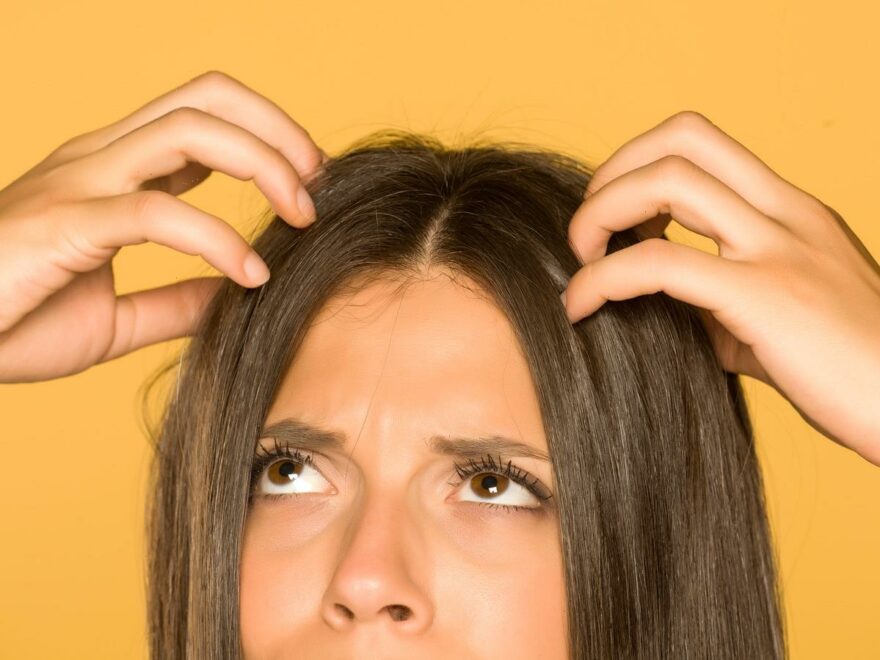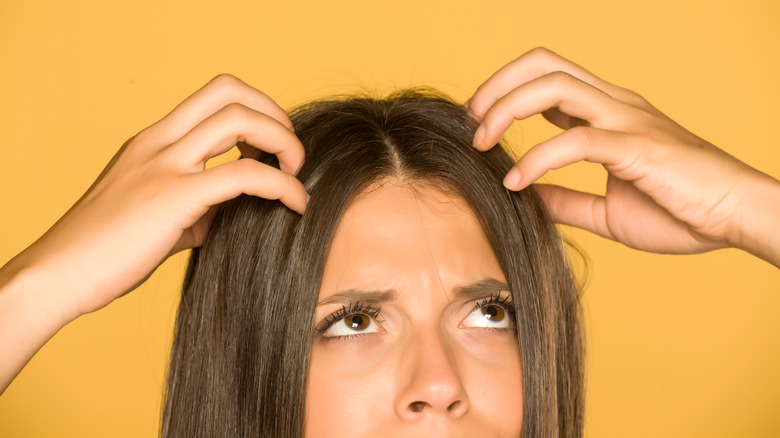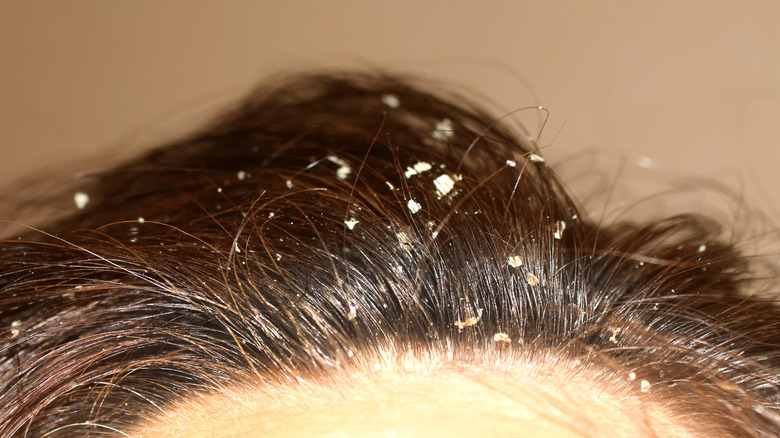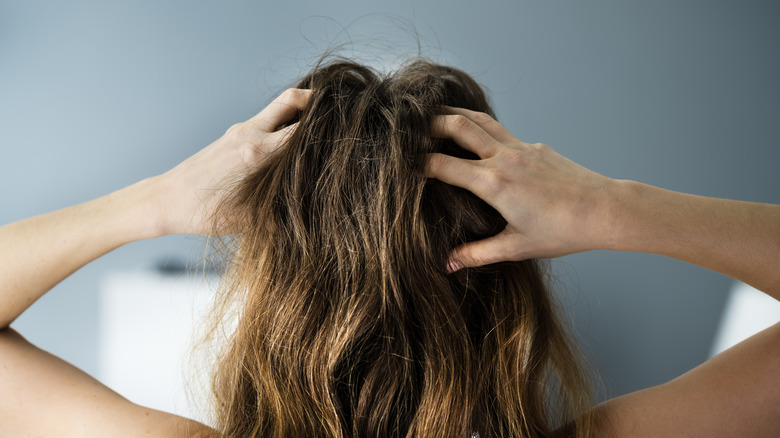If you have an itchy, flaky scalp, your first instinct may be to turn to anti-dandruff products, such as shampoos. And while this may be the right choice for many, there is a possibility that you are simply suffering from a dry scalp instead. The causes of dry scalp and dandruff are completely different, and it’s important to get to the root of the issue to find out what shampoos are best for you in order to treat and hopefully help alleviate your itchiness.
If you believe you have dandruff, but no shampoo in the world seems to be making a difference, then you may simply have a dry scalp instead, and vice versa. But how can you tell the difference? By putting your finger on the symptoms with our input, you’ll be able to give your scalp the nourishment it needs after all. Keep scrolling to read about the difference between dandruff and a dry scalp, and to find out if you’ve been using the right shampoo.
Dandruff can happen to anyone, so it's important to know what signs to look for
Dandruff is commonly misperceived as a symptom of dirty, unwashed hair, but in reality, dandruff can happen to anyone’s scalp. While it’s true that sometimes dandruff occurs when the hair is not washed enough, the main culprit of dandruff is excess oily buildup and fungus. “The scalp contains an abundance of hair follicles with sebaceous glands that produce large amounts of sebum — an oily substance — creating an ideal environment for fungi to thrive in,” dermatologist Blair Murphy-Rose told Byrdie. This causes skin cells to clump together in order to form large, oily flakes that are often yellow or white (via Healthline). Causes of dandruff can include stress, hormones, low vitamin D, allergies, certain hair products, or genetics.
Although dandruff isn’t 100% curable, finding the right shampoo for you can make a big difference. “In general, over-the-counter treatment options aim to either decrease the underlying inflammation, to remove and reduce the flakes from the skin, or to target the yeasts that form dandruff,” dermatologist Danny Del Campo told Insider. With dandruff, it’s best to use shampoos that have ingredients such as pyrithione zinc, selenium sulfide, and ketoconazole, which reduce fungus. Coal tar is another useful ingredient that slows down the rate in which your skin cells fall off your scalp (just be wary of its ability to be harsh against color treated hair and increase sensitivity to the sunlight). Anti-dandruff shampoos vary in strength, and prescription strength versions are available for more severe cases.
Dry scalp can be easier to identify, and is due to lack of moisture
While dandruff is caused by oil, dry scalps are straightforwardly caused by lack of moisture. Causes can be shampooing too often, certain irritating products, sunburn, climate, and those with naturally more dry skin are genetically predisposed. Flakes caused by a dry scalp tend to be smaller and not oily like dandruff induced flakes (via Healthline), and recognizing the features of your flakes is essential to diagnosing your scalp’s condition.
For the best shampoos for dry scalps, gentle is the way to go as anything that’s too harsh can strip the skin. Byrdie recommended that you make sure to stay away from fragrance, essential oils, and alcohol, and opt for hydrating ingredients such as aloe vera and oat milk.
Whether your scalp’s itching is caused by dandruff or a simply dry scalp, don’t worry, there is still hope for your condition either way. Differentiating between the two is the key step to finding the best shampoo to treat your scalp.
Source: Read Full Article



